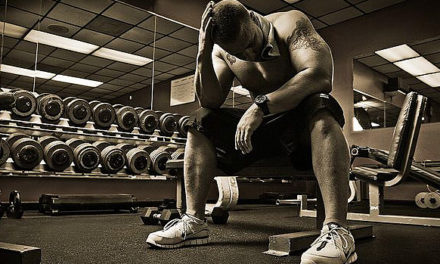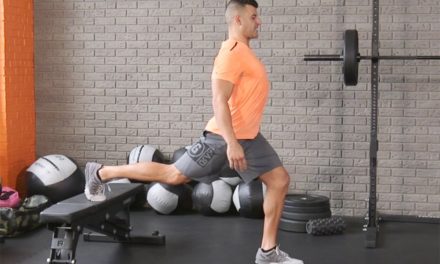For many of us, our first step in building a lean, strong, healthy body will be to lose weight. And for many of us, when we decide the time has come to take action our first instinct will be to exercise.
And this makes sense. Exercise burns calories and, barring any underlying medical issues, when you burn more calories than you consume, you lose weight.
But in the context of life, the relationship between food, eating, and exercise is such that it is simply too easy to consume calories and too hard to burn them for you to be able to lose more than a few pounds through exercise alone.
To lose weight, you are going to have to make changes to your diet.
To help illustrate this point, let’s dive into the relationship between exercise and weight loss in more depth.
Barring any underlying medical issues to lose one pound of body fat you need burn approximately 3500 calories more than you consume.
And to achieve this caloric deficit, you have two options. First, burn more calories via exercise. Or second, reduce your overall caloric intake by eating less calorically dense foods and / or eating less food overall.
Now at first glace, exercising to lose weight appears promising. According to many medical and fitness professionals you can burn up to 15 calories a minute, equal to 900 calories an hour, through various types of exercise.
But these commonly accepted statistics reflect the number of calories you can burn if you exercise at a very high intensely. Think an intensity of 9 or 10 out of 10.
But you need to be in excellent condition to be able to exercise that hard for an entire hour straight.
The reality is the vast majority of us, especially those of us who are new to exercise and those of us trying to lose significant weight, will need to exercise at a significantly lower intensity level.
And this means the vast majority of us will not be able to burn 15 calories a minute, but something closer to about 6-8. (Maybe up to 10 if you already in pretty good condition.) And in turn, this means we will not be burning 900 calories an hour, but closer to 360 – 480.
And what these numbers mean is that it is going to take far longer to burn just a single pound of body fat than most of us realize.
Now, to put this all into context, lets take a look at how long it can realistically take you to lose just one, five, and ten pounds of body fat through exercise alone.
First off, as a busy hard working adult you’re going to have to fit your exercise time around your work obligations, social life, and time with your family. And this means in all likelihood, at most, you’ll be able to exercise two to three times a week for forty five minutes to an hour at a time.
(You also have to remember to take into account the time it will take you to get to the gym, warm up, and then shower, change, and head home, or back to work, after your workout. A process that usually takes at minimum fifteen minutes, but often more. Meaning a forty-five minute workout is actually going to take an hour, an hour workout will take an hour and fifteen minutes, and so on and so forth.)
And second, if your conditioning is similar to that of most individuals who are trying to lose weight and who are new, or relatively new, to exercise, it is fair to assume that you may only be able to burn 450 calories per hour of exercise.
So, if you burn 450 calories per hour of exercise, given you need to burn 3500 calories to lose one pound of body fat, it is going to take you a little over seven hours and forty-five minutes to burn one pound of body fat.
And if, after accounting for the time it will take you to get to and from the gym, you’ll be able to exercise at peak intensity for a cumulative two hours per week it is basically going to take you four weeks, AKA one month, to lose one pound of body fat. (Technically it will take you 3.875 weeks…)
At that rate it is going to take you just under thirty-nine hours of exercise and five months to lose five pounds. Seventy-seven and a half hours of exercise and ten months to lose ten pounds. And over the course of an entire year? You’ll exercise a cumulative 93 hours and only lose twelve pounds!
And finally, all this assumes you keep your diet exactly the same as it was when you started working out. Even a slight increase in your daily and weekly caloric intake and all that exercise can be negated.
Think about this, if you drink just one more Starbucks Pumpkin Spiced Latte (350 calories) eat just one more small order of Bare Burger French fries (250 calories) and drink just two more glasses of wine (150 each for a total of 300) each week you will negate every single calorie you burned in our example above.
That is insane.
And that is why in the context of life it is so exceedingly difficult to lose more than a few pounds through exercise alone.
And why, if you want to lose significant weight, you will have to make changes to your diet as well.
Okay, that’s it for this week and we hope you now have a better understanding of the critical importance of nailing your diet.
See you all back here next week.
Your exercise and dietary coaching team.
Zach Moore Training.
And everyone, if you found today’s article insightful, inspiring or enlightening and you have a friend, family member, colleague or peer who you think would benefit from what we’ve talked about here today, pass on this email please.
One of the best things you can do for those you care about is helping them to build a healthy and great looking body. A body that is strong, capable and moves without pain and a body in which they feel confident and happy.





